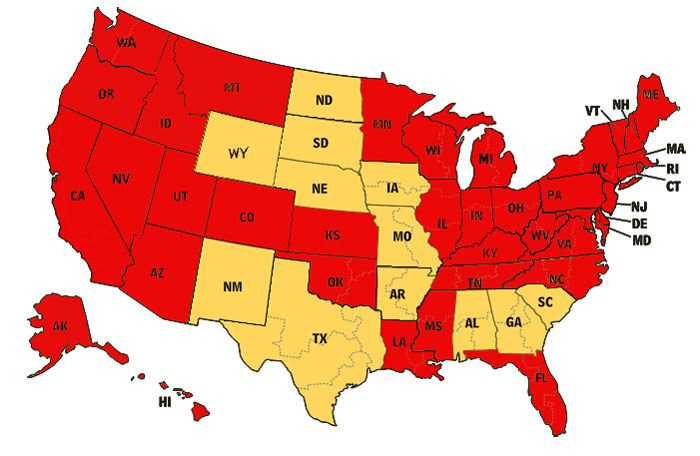Stay-at-home orders installed in Arizona and D.C.
The list of stay-at-home orders continues to grow, with Arizona and the District of Columbia being the latest additions.
On Monday, March 30, Arizona Gov. Doug Ducey signed Executive Order 2020-18, a statewide stay-at-home order. Using the catchphrase “Stay Home, Stay Healthy, Stay Connected” the order touts itself as a “policy that promotes physical distancing, while also encouraging social disconnectedness.”
Ducey’s stay-at-home order directs Arizona residents to limit their time away from home except for the following:
- Essential activities.
- Employment or volunteering in essential functions.
- Use any services or products provided by essential businesses.
- Employment, if as a sole proprietor or family-owned business, work is conducted in a separate office space from home and the business is not open to serve the public.
Nonessential businesses can continue operations that do not require in-person, onsite transactions. The order encourages those business operations to retain minimum basic operations that maintain the value of the business’ inventory, preserve the condition of the physical plant and equipment, ensure security, process payroll and employee benefits, facilitate remote work, and similar functions, such as mail pickup.
According to the order, no one will have to provide documentation or proof of their activities to justify them. The order is in effect until April 30 unless extended.
In Washington, D.C., Mayor Muriel Bowser signed Mayor’s Order 2020-054, a stay-at-home order for the nation’s capital.
The order directs all individuals living in D.C. to stay at their place of residence.
Like most stay-at-home orders, Bowser’s exempts essential activities, including obtaining medical care that cannot be provided through telehealth and obtaining food and essential household goods. However, people cannot linger in common areas of apartment buildings. Additionally, individuals cannot use buildings’ facilities, such as gyms, party rooms, lounges, rooftops or courtyard spaces.
Additionally, nonessential businesses conducting minimum business operations pursuant or fuller operations under a waiver from the Homeland Security and Emergency Management Agency may have to show their operational plan and why the activities they are conducting, and how they are conducting them, fit within allowable limits. Definitions of “essential businesses” can be found in Mayor’s Order 2020-053.
The Department of Consumer and Regulatory Affairs may impose penalties, including:
- Summary closure of businesses, subject to subsequent hearings at the Office of Administrative Hearings.
- Notices of infractions and orders to show cause why a business should not be closed.
- Notices of infractions and penalties of up to $1,000 per day for violations per site operating in violation of its order or Mayor’s Order 2020-053.
- Penalties of up to $5,000 per day per site for operation after an order to close, or a visit by an inspector that results in a warning or a request to close, that was immediately complied with.
Individuals can be subject to penalties authorized by law, including $1,000 fines, summary suspension or revocation of business licensure. Also, anyone who violates the stay-at-home order may be guilty of a misdemeanor and, upon conviction, subject to a fine not exceeding $5,000, imprisonment for not more than 90 days, or both.
The order goes into effect on April 1 and remains in effect through April 24.
Arizona stay-at-home order
Previous Land Line coverage of stay-at-home orders:









